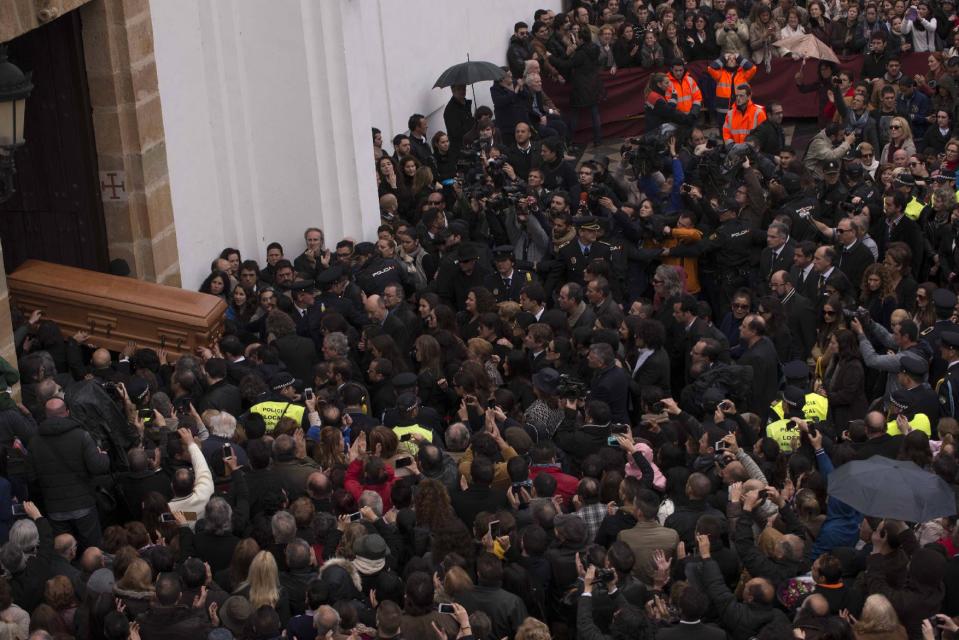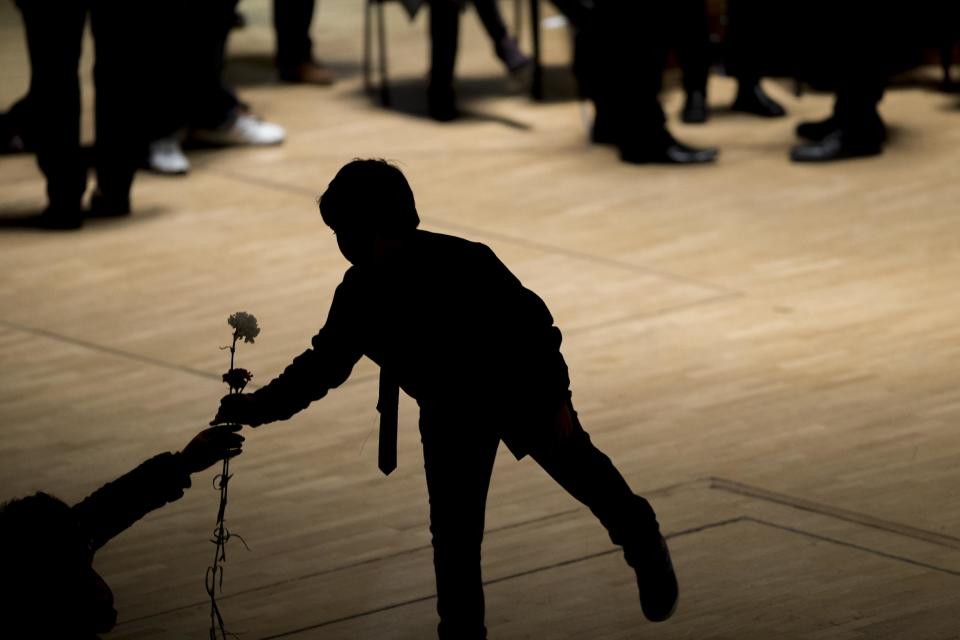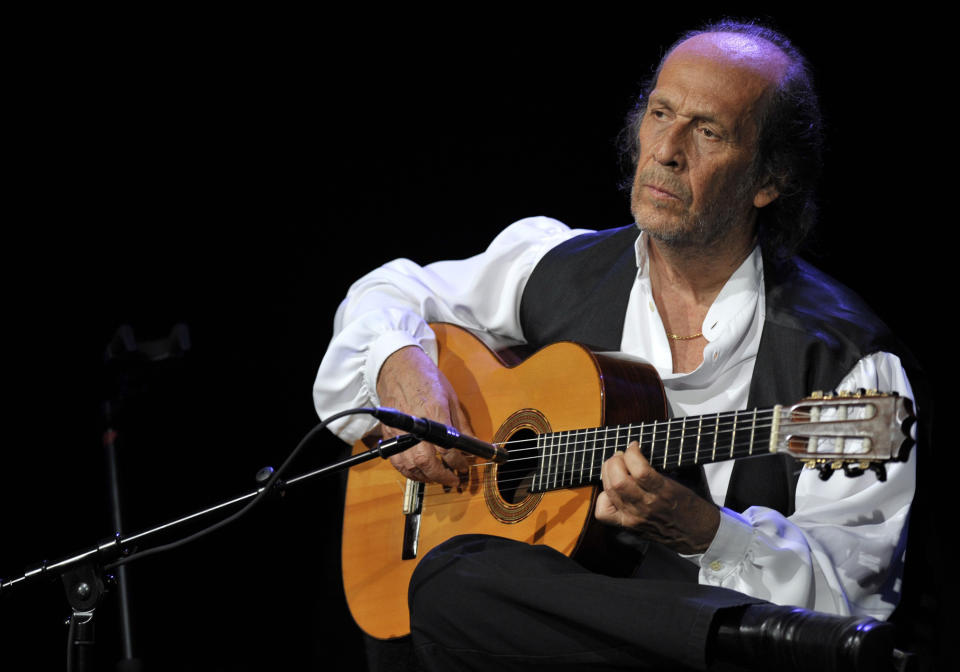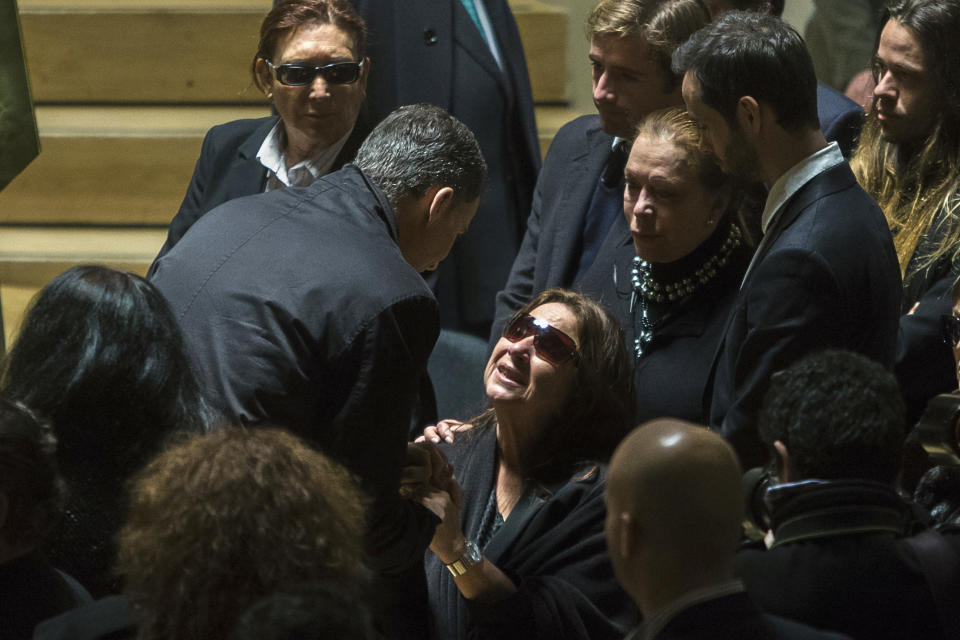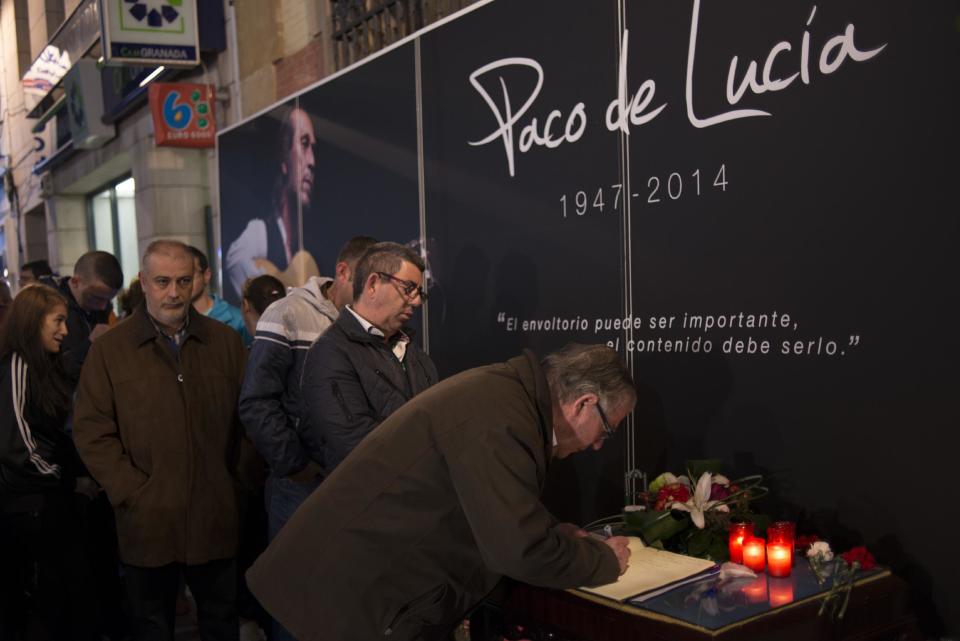Paco de Lucia receives heartfelt funeral in Spain
ALGECIRAS, Spain (AP) — Hundreds of people gathered in the rain to mourn the death of virtuoso guitarist Paco de Lucia before a funeral Saturday in his hometown of Algeciras at the heart of flamenco music country in Spain's deep south.
As De Lucia's body arrived at the town hall from Madrid early in the morning, mourners threw red roses over his hearse, called out his name and applauded.
He had been flown from Cancun, Mexico, where the 66-year-old died of a heart attack Wednesday while on vacation at a beachside holiday home he owned at Playa del Carmen just south of the Caribbean coast resort.
"I'm speechless. His death is such a great loss, and it caught us all by surprise," said 57-year-old painter and decorator Jose Maria Garcia, also a native of the Mediterranean port town of Algeciras.
No Spanish guitarist has been held in higher esteem by Spaniards since the death of classically-trained Andres Segovia (1893-1987), Garcia said.
De Lucia was one of Spain's greatest musical innovators, winning the admiration of fellow artists and fans alike.
Renowned British guitarist John McLaughlin said that to have worked and played music with De Lucia was one of the greatest blessings in his life.
"In the place where he lived in my heart, there is now an emptiness that will stay with me till I join him," McLaughlin told The Associated Press.
Early on in his career, he adopted a radically different playing technique by crossing his legs and placing the guitar on his right thigh, something that neither his flamenco mentors — Nino Ricardo and Sabicas — nor classical players like Segovia, had done previously.
This enabled De Lucia to hold the guitar almost horizontally and allowed easier access to the fret-board where his fingers could reach chords previously considered too tough to play.
In Andalusian towns like Algeciras — where a bronze statue commemorates the player and his hallmark playing position — De Lucia is best remembered for his work with singer Jose Monge Cruz, whose stage name was Camaron de la Isla.
As a duo, De Lucia and Camaron elevated flamenco music from its roots in small venues and even hillside caves and took it to some of the world's most famous concert halls. With De Lucia as studio producer, they also left a rich legacy of some of flamenco's most thrilling recorded music.
De Lucia's repertoire also included classical music, and his renditions of compositions by Manuel de Falla and Joaquin Rodrigo won praise.
While on one of his world tours, De Lucia became fascinated by the cajon — a box-like percussion instrument used in Peruvian criollo (or creole) coastal music. Today the cajon is as much an integral part of flamenco as is the guitar or staccato hand-clap.
Nowhere was the versatility or technical prowess of De Lucia's style better showcased than in the jazz trios and sextets that he formed with guitarists like McLaughlin, Larry Coryell or Al Di Meola, pianist Chick Corea and jazz fusion percussionist Rubem Dantas.
"What I admire most is his total humility in the face of huge success and his human warmth," Garcia said.
Spain began its formal mourning of De Lucia — who took his stage name from his mother's first name, literally meaning "Paco, Lucia's son" — on Friday at Madrid's National Auditorium music center, where royalty mingled with grieving music fans to pay their last respects before De Lucia's casket and offer condolences to his family.
De Lucia's coffin was visited throughout the night by a stream of people in Algeciras' town hall before being taken just past noon to church where Pepe de Lucia, the guitarist's brother, sang a heart-rending flamenco tribute at a funeral Mass.
___
Harold Heckle reported from Madrid.
